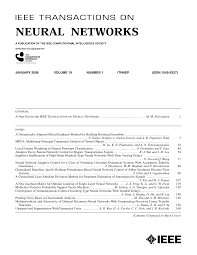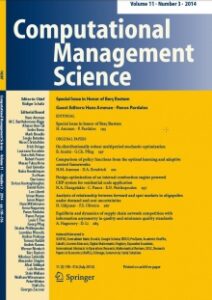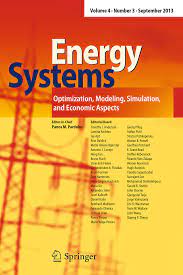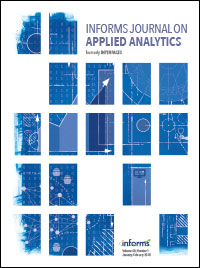- About me
- Publications
- Ren. in El. Markets
- Module 1 – Fundamentals of electricity markets
- Module 2 – Electricity spot markets (e.g., day-ahead)
- Module 3 – Intra-day and balancing markets
- Module 4 – Ancillary services
- Module 5 – Impact of renewables on electricity markets
- Module 6 – Participation of renewables in electricity markets
- Module 7 – Introduction to renewable energy analytics
- Module 8 – Verification of renewable energy forecasts
- Module 9 – Renewable energy forecasting – First steps
- Module 10 – Renewable energy forecasting – Advanced topics
- Additional industry interviews
- Interviews with former students
- Exercises
- Int. J. Forecasting
- Contact
- Download CV
In press/Available online
Publication Types:

Privacy-aware data acquisition under data similarity in regression markets
2025ArticleIn press/Available onlineJournal paper
IEEE Transactions on Neural Networks and Learning Systems
Publication year: 2025
Data markets facilitate decentralized data exchange for applications such as prediction, learning, or inference. The design of these markets is challenged by varying privacy preferences as well as data similarity among data owners. Related works have often overlooked how data similarity impacts pricing and data value through statistical information leakage. We demonstrate that data similarity and privacy preferences are integral to market design and propose a query-response protocol using local differential privacy for a two-party data acquisition mechanism. In our regression data market model, we analyze strategic interactions between privacy-aware owners and the learner as a Stackelberg game over the asked price and privacy factor. Finally, we numerically evaluate how data similarity affects market participation and traded data value.

Fairness by design in shared-energy allocation problems
2025ArticleIn press/Available onlineJournal paper
Computational Management Science, in press/available online
Publication year: 2025
This paper studies how to aggregate prosumers (or large consumers) and their collective decisions in electricity markets, with a focus on fairness. Fairness is essential for prosumers to participate in aggregation schemes. Some prosumers may not be able to access the energy market directly, even though it would be beneficial for them. Therefore, new companies offer to aggregate them and promise to treat them fairly. This leads to a fair resource allocation problem.
We propose to use acceptability constraints to guarantee that each prosumer gains from the aggregation.
Moreover, we aim to distribute the costs and benefits fairly, taking into account the multi-period and uncertain nature of the problem. Rather than using financial mechanisms to adjust for fairness issues, we focus on various objectives and constraints, within decision problems, that achieve fairness by design. We start from a simple single-period and deterministic model, and then generalize it to a dynamic and stochastic setting using, e.g., stochastic dominance constraints.

On the efficiency of energy markets with non-merchant storage
2024ArticleIn press/Available onlineJournal paper
Energy Systems, in press/available online
Publication year: 2024
Energy market designs with non-merchant storage have been proposed in recent years, with the aim of achieving optimal integration of storage. In order to handle the time linking constraints that are introduced in such markets, existing works commonly make simplifying assumptions about the end-of-horizon storage level. This work analyses market properties under such assumptions, as well as in their absence. We find that, although they ensure cost recovery for all market participants, these assumptions generally lead to market inefficiencies. Therefore we consider the design of markets with non-merchant storage without such simplifying assumptions. Using an illustrative example, as well as detailed proofs, we provide conditions under which market prices in subsequent market horizons fail to reflect the value of stored energy. We show that this problem is essential to address in order to preserve market efficiency and cost recovery. Finally, we propose a method for restoring these market properties in a perfect-foresight setting.

Data-driven at sea: Forecasting and revenue management at molslinjen
2024ArticleIn press/Available onlineJournal paper
INFORMS Journal of Applied Analytics, in print/available online (invited paper - winner of the INFORMS Edelman Award 2024)
Publication year: 2024
Molslinjen, one of the world’s largest operators of fast-moving catamaran ferries, based in Denmark, adopted a focus on digitalization to profoundly change its operations and business practices. Molslinjen partnered with Halfspace, a data, analytics and AI company based in Copenhagen, Denmark, to support that transition. Halfspace and Molslinjen jointly developed and deployed a successful forecasting and revenue management toolbox for the data-driven operation of ferries in Denmark since 2020. This has resulted in $2.6-3.2 million yearly savings (and a total of $5 million savings as of December 2023), a significant reduction in the number of delayed departures and average delays, and a 3% reduction in fuel costs and emissions. This toolbox relies on some of the latest advances in machine learning for forecasting and in analytics approaches to revenue management. The potential for generalizing our toolbox to the global ferry industry is significant, with an impact on both revenues and environmental, societal, and governance criteria.
